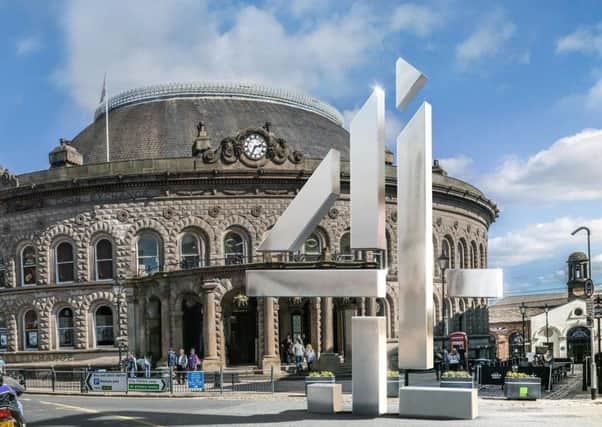Channel 4, The Brexit Party and why journalistic freedom matters - Anthony Clavane


The successful applicant should be armed with story ideas, suggest ways to promote the broadcaster across the region and must have strong editorial judgement and proven production experience – and an unswerving belief in Nigel Farage’s ability to walk on water.
This last requirement is fake news. Which is precisely what Farage thinks of the channel’s early-evening bulletin. The pinstriped populist likes to attack Jon Snow and his fellow pinkos as being part of a so-called media elite.
Advertisement
Hide AdAdvertisement
Hide AdWhich he has every right to do. What he does not have a right to do is blacklist Snow’s pinkos from Brexit Party events.
It was revealed this week that Channel 4’s news team was banned for six weeks from covering the party – a decision that was eventually rescinded after a meeting between the broadcaster and the party’s chairman following a row over the behaviour of one of the station’s news and camera crews at the rally in Parliament Square on March 29.
Channel 4 have defended their journalists and it is positive that the situation now appears to have been resolved.
Advertisement
Hide AdAdvertisement
Hide AdJournalistic freedom is the cornerstone of this country’s democracy and it is very worrying that any party, let alone one which looks like running away with the European elections, is intent on denying access to a media organisation it disapproves of.
And this is not, it must be said, any media organisation we are talking about. This is the pioneering, iconic, independent award-winning media organisation which broke the mould of TV news when the channel was set up in 1982. Like the broadcaster itself, it quickly gained a reputation for pushing boundaries, introducing many of the techniques we now take for granted, such as expert analysis and live interviews with its own correspondents.
And this is not any channel we are talking about. This is Channel 4.
To sections of the Right it might be part of the “liberal establishment” but, from the start, it has always been edgy, experimental and supremely entertaining.
Advertisement
Hide AdAdvertisement
Hide AdAccording to the magazine Spiked, however, its coverage of the Brexit Party “has been embarrassing and desperate, another sign of a media elite desperate to downplay (its) rise and present it as some criminal conspiracy.”
This paranoia about the mainstream media, elevating Farage to the role of scourge of the establishment, ignores the fact that Nige is hardly, himself, a man of the people.
He is, in fact, the son of a stockbroker who had a conventional upper-middle-class upbringing, attending fee-paying Dulwich College before entering the City as a commodities trader.
Ever since Mary Whitehouse got her knickers in a twist about its taboo-breaking films and comedies back in the 1980s, and the Daily Mail described the then chief executive Michael Grade as Britain’s “pornographer-in-chief”, the state-owned broadcaster has been a target for anti-progressive politicians. There was even a doomed attempt to privatise it.
Advertisement
Hide AdAdvertisement
Hide AdIronically, its remit has always been to serve those marginalised and disaffected communities who have been ignored by the privately-educated, privileged, media elite.
Farage also champions such communities – but appears to have a different view of who, exactly, they are. His party – which wants to “make Britain great again” – also have a different take on what makes Britain great.
For me, Channel 4 fulfils this function. It is a great British institution, in its first decade alone directly funding 136 features, providing a significant boost to our film industry. Without Film on Four’s backing, this country would not have produced such classics as My Beautiful Laundrette, Trainspotting, Mona Lisa and Distant Voices, Still Lives.
From dramas like Skins, Queer As Folk and Hollyoaks to reality shows like Come Dine With Me and Big Brother – via comedies like Drop The Dead Donkey, Father Ted, Brass Eye, Peep Show, Smack The Pony and Black Mirror – it has constantly led the way.
Advertisement
Hide AdAdvertisement
Hide AdSimilarly, its flagship bulletin has helped to make British broadcast news respected worldwide. Like these shows, it has always been prepared to take risks in the pursuit of creative excellence.
More importantly, despite a plethora of news channels now providing 24-hour coverage, it still manages to stand out for its fearless investigations and journalistic integrity. Whatever Mr Brexit thinks.